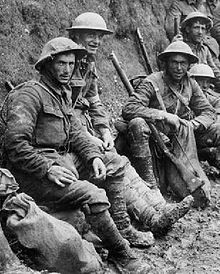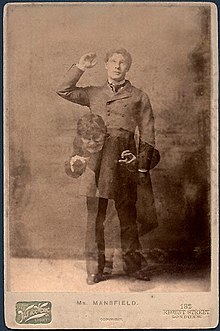This story of two gay
men made me wonder how people in 2019 would react. For something that was made
in the 1900s it's about a gay interracial couple, which is something we often
don’t often see in today's media. Throughout the passage I couldn't help but go
back and forth throughout the reading to realize that Forster is doing a lot of
foreshadowing in this book. “‘A very holy man had once told him that what
nearly destroys may bring strength and can be summoned in the house of
revenge.’” “‘I’ve no use for revenge’ Lionel said.” Eventually though, when he
is bitten by his lover it is stated that it was sweet vengeance that Lionel was
doing to the men he fought though it was actually his lover. There are many
more examples of irony and foreshadowing throughout the passage. The example
that is most important is, what changed Lionel to want revenge? Why was he
suddenly so angry with the wounds inflicted on him by others? There are two
options. First, post-traumatic stress disorder or PTSD could be an obvious cause
of this. PTSD is very common in soldiers no matter the age. Someone who is not
reading this passage very in-depth could think of this as PTSD. According to
the United States Department of Veterans Affairs in the Vietnam War, a total of
30% veterans had PTSD at one point in their lifetime. It wouldn’t be out of the
question that he might actually have it. The second idea is that whoever comes
back is not actually Lionel. He has now accepted his place with the other white
people. He didn’t feel passionately anymore and only thought about other
people's feelings. This confliction can be caused by knowing a relationship
with Cocoanut would make his life hard, but he would be living an authentic
life that he wanted. Going the easy route can lead to more conflict within
oneself. According to Doctor Leon Seltzer “So, within life’s untidy framework, you’re frequently
obliged to choose between what hasn’t been making you happy—or may even be
making you miserable but, nonetheless, is safe and free from anxiety—and what
might lead to far greater satisfaction and well-being, but is hardly a sure
thing. In consequence, what you may have gotten used to, however frustrating
and unfulfilling, must wage battle with what might be better for you, but isn’t
without worrisome uncertainties.”
So while Lionel likes Cocoanut,
he does not. Lionel would never need revenge, but this new man does. This can
be proven by what he says when he goes back to Cocoanut. “‘When you come back
to the cabin you will not be you. Cocoa had said: ‘and was it so?’” This
explains why he is doing these things, and we as the audience could even see
this other person popping out when he makes racist comments about his lover to
the other white people. Afterwards, he feels horrible. It is obvious that Lionel
is a very conflicted person inside, maybe even troubled with what he wants, and
when it comes to be a moment where what he wants matters, he makes the wrong
choice. Cocoanut lived the
way he wanted though, and that's probably what made him content with his
choices. Even when he was dead he went against the norms of that society. Many would and will say that their deaths mean
freedom for both of them, however I disagree. Not every LGBTQ+ relationship that ends with death means
freedom. The interpretation is valid, but I would argue that this is very much
a tragedy. When talking about Romeo and Juliet often people call is a tragedy.
Just as this story was. Even in 2019 people kill themselves because they are
forced to not be authentic themselves. This is not freedom, this is a cage that
always ends in death. If love always ends with death then it is not freedom.
Freedom means choices, not tragic death.
Works Cited
“National Center for
PTSD.” PTSD, 24 July 2018,
www.ptsd.va.gov/understand/common/common_veterans.asp.
Seltzer , Leon. “What Causes You Inner Turmoil?” Psychology Today, Sussex Publishers,
www.psychologytoday.com/us/blog/evolution-the-self/201504/what-causes-you-inner- turmoil.



